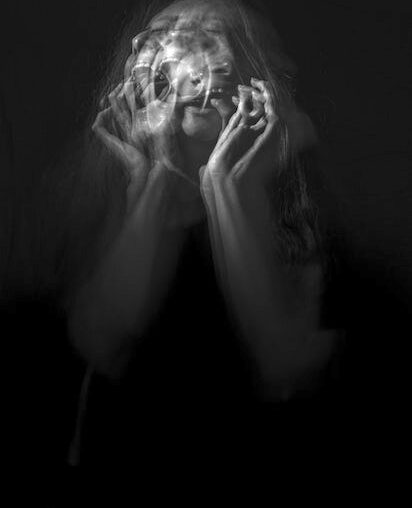Content warning: contains discussion of eating disorders
In some ways my eating disorder feels like my oldest friend. It’s hard to recall a time when it wasn’t part of my life.
I was six years old when my weight first became a target for bullies. Shortly after – and I still do not know where a small child learned such an idea – I bent over the toilet for the first time and made myself sick, vomiting my mother’s carefully-packed lunch. So began the decades-long cycle of dieting, bingeing, purging and body loathing that, despite countless dollars and hours spent in therapy, continues to this day.
Often when we think of eating disorders, we think of the stereotypical image of an emaciated young woman: malnourished, skeletal; weak and thin to the point of alarm.
This was never my story – I have never been thin, and am often loathe to disclose my diagnosis for fear of the inevitable raised eyebrow and sceptical “but you don’t look like you have an eating disorder…”
But body size is no indicator of the depth of distress. Believe me when I say my eating disorder has taken me to the brink of death, more than once.
The stereotypical portrayal of eating disorders, anorexia in particular, means that we risk missing the many hundreds of thousands of Australians – current estimates suggest around 4% of the population live with an ED – who are hiding in plain sight; in bodies of all sizes, but no less in need of support.
Every day is hard with an eating disorder – though some are more challenging than others. For many, the High Holy Days are a particular struggle. Tables heaving with food; the pressure to clean your plate. The inevitable sing-song of diet culture and body comments from extended family; the affectionate pinch of your underarm schmaltz, the jokes of ‘thank G-d we have Yom Kippur to make up for the extra calories!’. The pressure to look the part in a pretty new dress as you inch your way through shul or smile for a pre-chag selfie.
A lockdown yom tov, though free of these particular pressures, is no less challenging – indeed, it seems the isolation and loss of control and routine wrought by COVID has presented something of a perfect storm for eating disorders.
Elul is an interesting experience for those of us living with ED. Brains often primed for black-and-white perfectionism, the good-vs.-bad, ‘am I enough?’ of teshuvah is a potent combination. Such is the focus on weighing of actions that Googling an article on Rosh Hashanah or Yom Kippur features an image of scales as often as it does a shofar or apple.
And then there is the annual question of Yom Kippur: to fast, or not to fast? Fasting is contraindicated for ED recovery – but what does that mean for one’s neshama? My psychiatrist assures me that I must not fast, that I have a legitimate medical exemption; but what would a Rabbi say? Is it a ‘real’ enough reason – particularly if my ED does not fit the mould? Do pikuach nefesh and shmirat haguf include mental health?
If I do not fast, am I a good enough Jew?
As I creep closer – slowly, frustratingly, erratically – towards recovery, I am more able to hold that inner ED voice at arm’s length, and I notice how familiar it is; how closely it is tied to those quintessential Jewish traits of guilt and shame.
The same voice that tells me I am not a good enough person if I do not lose weight, is the same one that tells me I am not a good enough Jew if I do not fast.
The part of me that says ‘sorry’ compulsively, that apologises for asking questions or taking up space, is the same part of me that takes to repentance like an Olympic sport; cataloguing my flaws, seemingly numberless, and presenting them to G-d for His scrutiny.
But eating disorder recovery forces us to quiet that voice; to hold ourselves with gentleness, not perfection. This year I will again sit with the discomfort of Yom Kippur, but not the discomfort of a rumbling stomach; rather, the discomfort of giving myself permission not to fast, and of choosing to believe that I am no less worthy because of it.
It’s not easy – but perhaps for some of us, making amends to oneself – forgiving our imperfections, our wholeness, our essential humanity – is the ultimate teshuvah.
Tzom kal.
By: Anonymous

